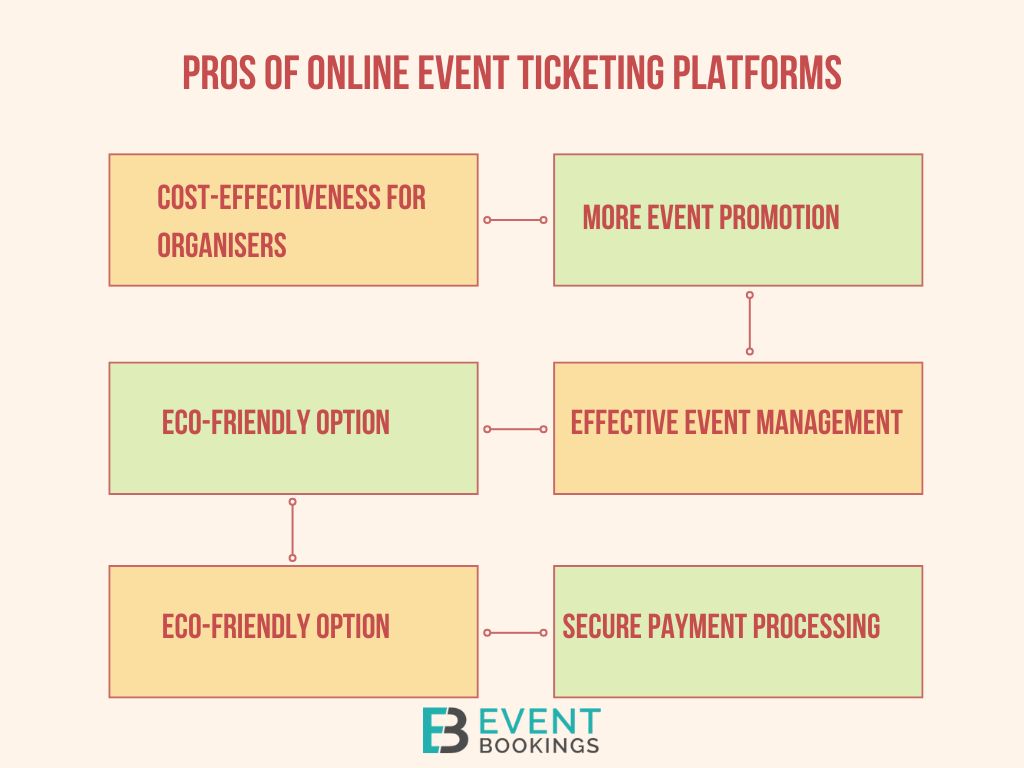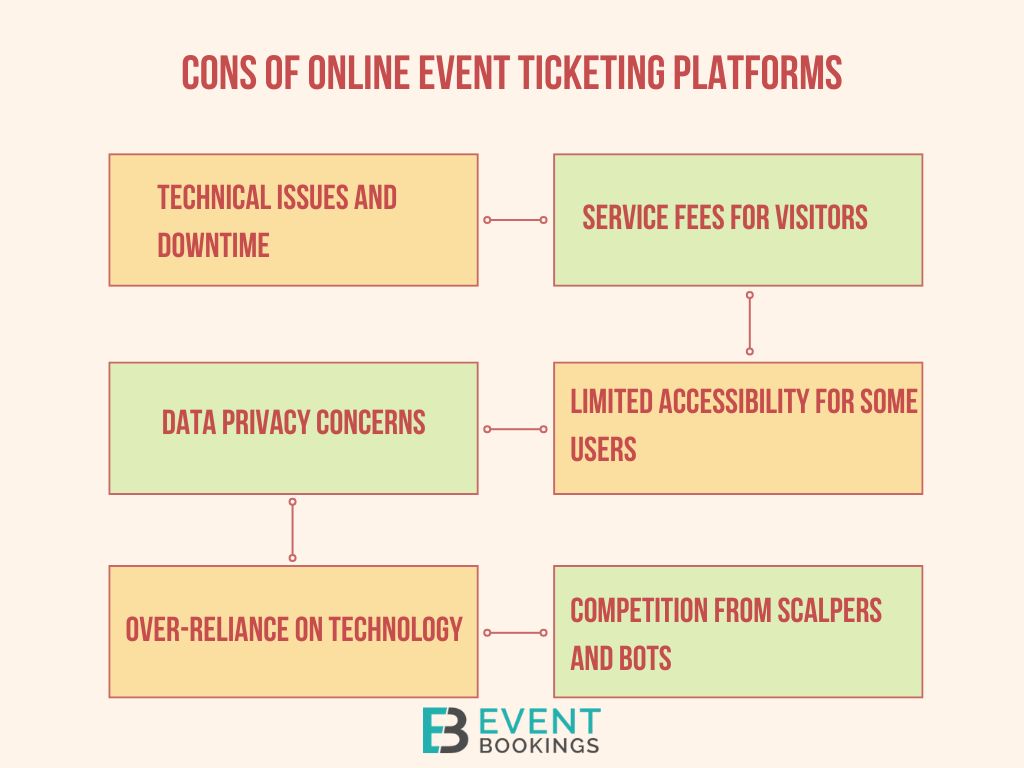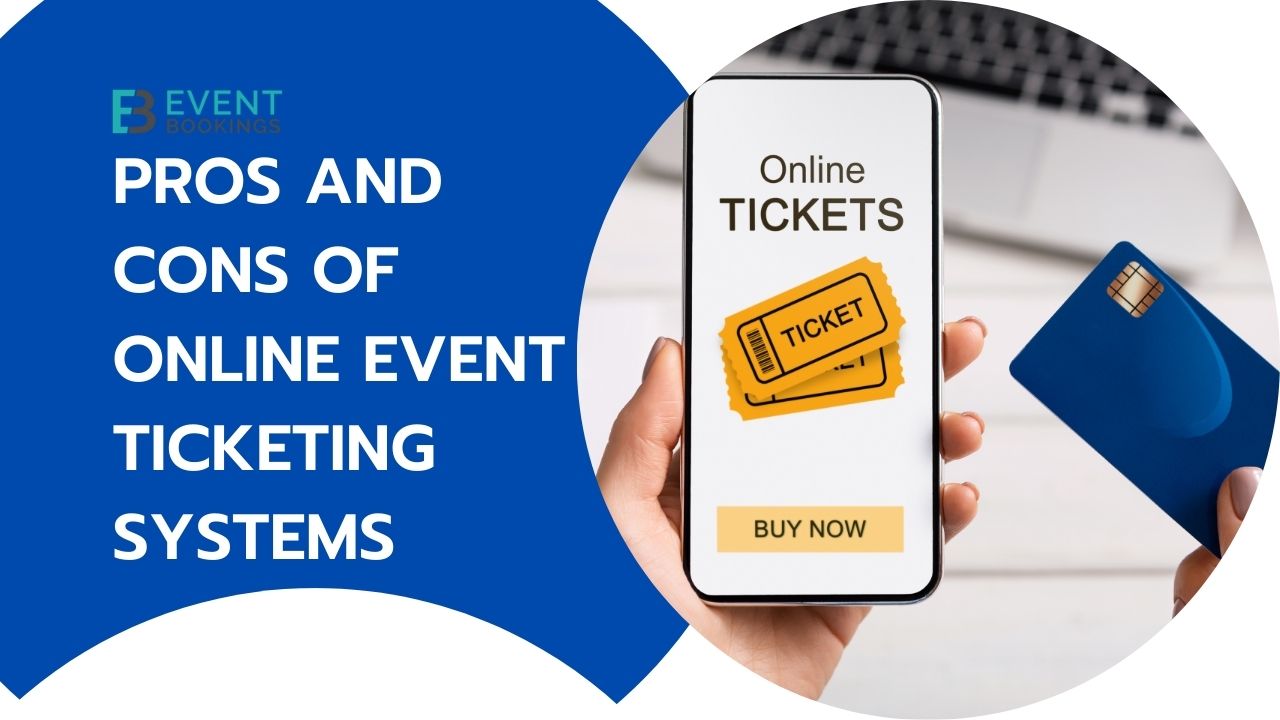Using an online ticketing platform for your events is a smart move since nine out of ten purchasers rank convenience as their top consideration when making a purchase.
For what reason? With a few taps on their phones, your ticket customers may get tickets to their favourite events, such as thrilling concerts, heart-pounding sporting events, captivating theatre productions, etc., from the comfort of their homes. This is what they want.
Additionally, it makes your work as an event planner really simple and seamless.
Quick, data-driven decisions can be facilitated when necessary by managing your event data and attendance information in one handy area with the correct online ticketing software.
All things considered, selecting an online ticketing platform might be challenging. This can be more of a hassle than a convenience, mainly if you are not aware of the small aspects that set an excellent platform apart from a bad one.
There are benefits and drawbacks to each platform, so understanding what to consider when choosing one will be crucial to the success of your event sales.
In this article, we have listed the benefits and drawbacks of well-known online ticketing platforms, along with the key facts that can influence your decision. Now, let’s get started.
Pros of Online Event Ticketing Platforms

Convenience for Accessibility
One of the best advantages of online ticketing systems is that they are convenient for visitors. While in other ticketing systems, customers need to put in an effort to visit a place, online ticketing enables people to purchase tickets from home, the office, or even while travelling. This comes in handy, particularly for large events with an international fan base, since members from across the globe can join in without physically moving to a different location or queuing.
Cost-Effectiveness for Organisers
For event organisers, a shift to online ticketing can contribute significantly to reducing overhead costs. Direct sales come with costs, such as ticket printing and physical distribution, and staff for manual sales. Mechanised ticketing systems mechanise much of the process, reducing administrative costs and freeing organisers’ resources for application elsewhere within their event.
More Event Promotion
It is promotion and marketing that will make an event a success, and online ticket sellers generally have facilities that make it possible to do these. Social networks, email marketing, and affiliate schemes are often integrated into many sites so that the organiser can sell more without much extra work.
Safety is paramount to both the visitors and the organisers of an event, and ticketing sites have several features that protect against fraud. Single-use QR codes, secure payments, and electronic verification are a few of the features that make each ticket legitimate and cannot be copied.
Effective Event Management
Event management is the act of consolidating various elements, from selling tickets to the check-in of guests. Online ticketing platforms facilitate this by providing organisers with instant feedback on ticket sales, guest demographics, and attendance levels. This can be utilised in decision-making, such as adjusting marketing strategies or increasing capacity when the need arises.
Eco-Friendly Option
With sustainability moving up the agenda, online ticketing systems also provide a greener method of delivering tickets than traditional paper tickets. With digital tickets, event organisers can substantially reduce paper usage, aiding conservation efforts.
Apart from ticketing, digital event management platforms also restrict the use of printed schedules, brochures, and promotions. With mobile ticketing and digital communications, events can be kept sustainable while offering a smooth experience to visitors.
Secure Payment Processing
Secure payment processing is another major advantage of an online ticketing system. Online ticketing systems use encrypted payment gateways to protect users’ financial information and enable secure transactions. Users have the option of making payments through a range of methods, including credit cards, digital wallets, and online banking, offering greater flexibility and convenience.
Cons of Online Event Ticketing Platforms

Technical Issues and Downtime
Despite their benefits, online ticketing platforms are not immune to technical issues. Server crashes, slow pages, or software bugs can disrupt ticket sales and inconvenience potential visitors. The downtimes can impact revenue, mostly if they occur during peak sales periods.
Service Fees for Visitors
Most websites charge service fees, which are actually passed on to the visitors. The additional fees make tickets expensive, and hence, some customers may be deterred from purchasing them.
To this, the expense of such expenses could be borne by event organisers either in the ticket price or offering discounts and promotions for charging back. Educating the customer completely on the ticket price as well as the fee also serves to control customer expectations.
Limited Accessibility for Some Users
Whereas internet-based ticketing systems increase accessibility for the majority, they can prove difficult for those who are not technology-friendly or lack internet access. Elderly audience members, rural residents, or individuals who prefer face-to-face purchases may find it difficult to use digital ticketing systems. Offering different methods of tickets, including offline sales, can suit all potential attendees and offer inclusivity.
Data Privacy Concerns
With digital transactions, data security is always at stake. Personal and financial information gathering is exposed to data breaches and misuse. In a bid to reverse this, the organisers must ensure the ticketing system meets industry standards and regulations, either GDPR or PCI-DSS, to secure the users’ data.
Over-Reliance on Technology
Fully digital ticketing infrastructure means that organisers, as well as visitors, are extremely dependent on technology. A power loss, a system crash, or an internet failure can result in last-minute glitches. Keeping backup arrangements, such as offline check-ins, can go a long way in reducing the risks of technology disasters.
Competition from Scalpers and Bots
Scalpers and bots also take advantage of online ticketing systems by buying thousands of tickets within a matter of seconds and selling them to supporters for a higher price. Not only does this annoy real attendees, but it also tarnishes the image of an event.
To deter this, organisers can use CAPTCHA authentication, ticketing restriction per transaction, and identity-based ticketing to curb unauthorised consumers from bulk purchasing.
Key Considerations When Choosing an Online Ticketing System
For event planners, venues, and businesses who want to sell tickets conveniently and enhance the experience of their visitors, it is inevitable that the proper ticketing system and platform be created. It will be difficult to find the ideal ticketing system or platform for your application due to the vast diversity out there. The following are among the important items to be careful about while choosing a ticketing platform that can help guide you in making the right decision.
Ease of Setup and Use
Two among them are most critical, which are the useability and configuration of the platform. Choose a ticketing platform whose event creation features are easy to use, have a user-friendly interface, and are easy to configure tickets. Ticketing may be made easy with a platform that offers aspects of drag and drop, editable layouts, and easy integration into your website and social media handles.
Customisation and Branding of Tickets
It is critical to keep your brand presence and provide a seamless event experience. Ensure that the ticketing platform enables you to brand and customise your confirmation emails, event pages, and tickets. Seek opportunities to include your event information, colours, logo, and promotional photos. This way, you can keep things consistent and give guests a branded ticketing experience.
Flexibility in Ticket Types and Pricing
Consider how simple it is to create several types and price points of tickets. The system should be able to support your requirements whether you require general admission, VIP tickets, early bird specials, or tiered pricing. It should also support the setup of discounts, promotions, and bundling to enable you to optimise your ticket sales plan.
Processing Fees and Payments
Examine the ticketing platform’s choices for processing payments. Make sure it provides safe transactions and supports a range of payment gateways. Consider the platform’s pricing schedule as well, considering transaction, processing, and other fees. Achieve equilibrium between the value offered by the platform’s features and services and competitive price.
Data and Analytics
In-depth data and analytics access will allow you to get to know your attendees more, make educated decisions, and enhance subsequent events. Find a ticketing solution that offers tracking of marketing efforts, real-time reporting, sales information, and attendee demographics. You can use this information to target particular audiences, examine ticket sales patterns, and gauge your marketing initiatives’ effectiveness.
Customer service and support
Having good customer support is essential for handling technical and ticketing problems. Go through the customer support features of the platform, like live chat, email, and phone. See how responsive they are and how much they want to help by reading reviews or consulting other event planners for recommendations.
Mobile Accessibility and Ticket Scanning
A ticketing platform should include mobile accessibility and smooth ticket scanning features in today’s mobile-first world. See whether the platform is mobile-ticketable and ticket-checking by smartphones is available to participants. Keep the entry quick and straightforward by verifying if the platform has the ability to take barcode scans or QR code technology.
Conclusion
Event online ticketing systems have numerous benefits, including convenience, higher marketing, and cost savings. However, they also have disadvantages, including technical issues, service fees, and data security problems. With the right choice of a reliable platform and best practice implementation, event planners can maximise ticket sales, improve audience experience, and ensure event success.




